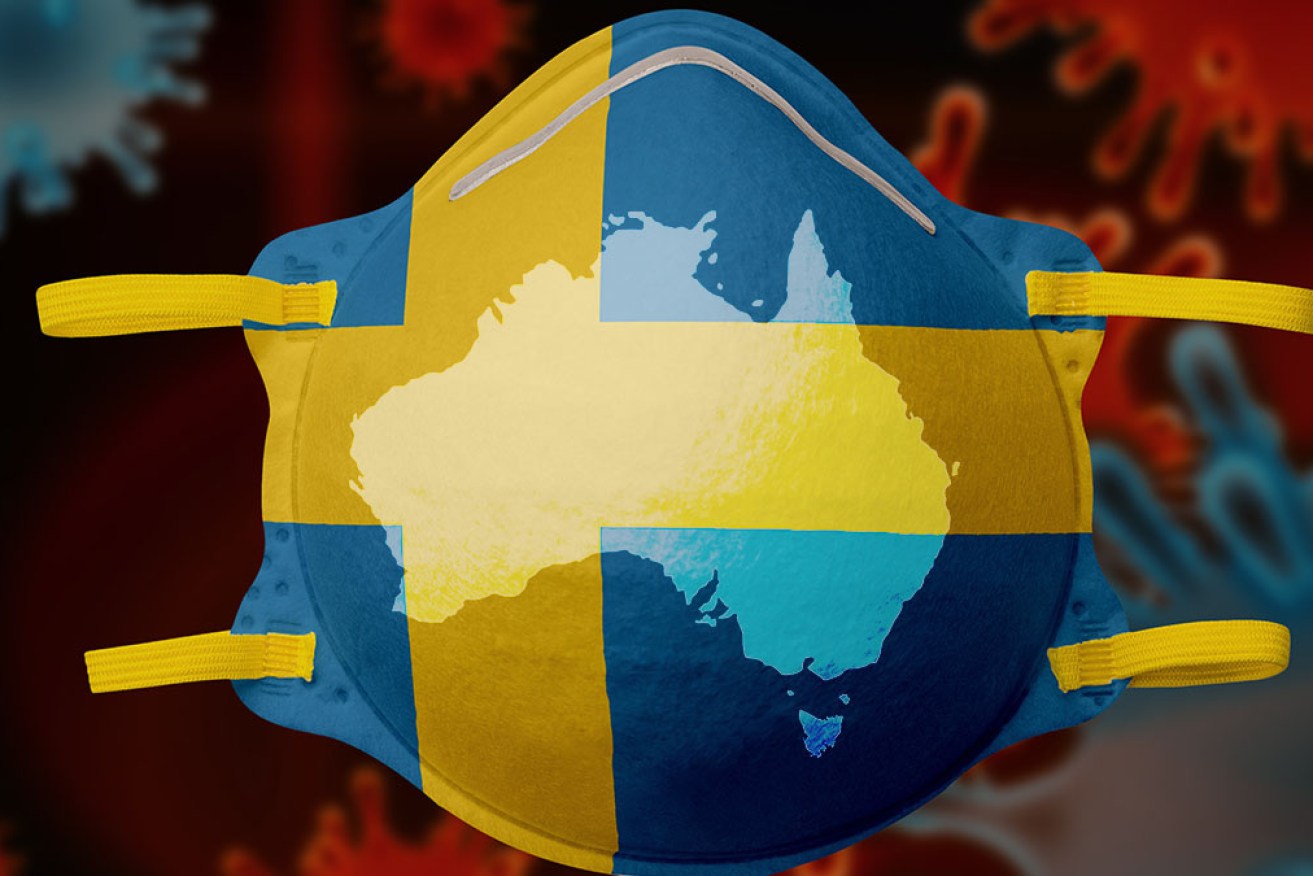Coronavirus: How Australia compares to Sweden, Germany, South Korea, and more


Sweden has been heavily criticised for its response to COVID-19. Image: Ema Osavkov
Epidemiologists and armchair experts alike are closely watching the different responses to the coronavirus pandemic around the world, and using data to show which are succeeding and failing.
Sweden has garnered criticism for what some experts say is a “relaxed” response to COVID-19 that has resulted in a higher number of deaths than other comparable countries.
In an article published in The Conversation, two epidemiologists from Sweden’s Lund University highlighted the growing concern among Swedish doctors and scientists over their government’s approach to COVID-19.
“Unlike its Nordic neighbours, Sweden has adopted a relatively relaxed strategy, seemingly assuming that overreaction is more harmful than under-reaction,” Professor Paul Franks and Professor Peter Nilsson wrote.
However, Sweden has a much higher number of COVID-19 fatalities than neighbours Denmark and Norway, despite having a similar number of confirmed cases, the researchers noted.
So how does Sweden compare to Australia?
As of Monday morning, the Scandinavian country had a similar number of confirmed COVID-19 cases to Australia (3700 v 3980), but many more deaths (110 compared to 16).
University of New South Wales infectious diseases expert Raina MacIntyre said the difference in the number of deaths may be partially due to Australia’s testing regime.
Case fatality rate (CFR) is an epidemiological term for “the proportion of people who die from a specified disease among all individuals diagnosed with the disease over a certain period of time”.
“The case fatality globally has been varied, is generally lower in countries that have tested more (and therefore identified more people with mild infection) and highest in countries where ICU capacity has been stretched or exceeded, such as Italy and Spain,” Professor MacIntyre said.
“Australia is still within capacity of the health system, and has also done a lot more testing than Sweden, I suspect. This may be contributing to the lower case fatality rate.”
Epidemiologist Abrar Chughtai, a lecturer in international health at UNSW, has been tracking CFR globally.
Australia is “doing well in testing” and is “far ahead of many countries”, Dr Chughtai said.
The CFR is low in countries doing “wide testing”, such as South Korea and Germany, he said.

As of March 30, Germany had a CFR of 0.7 per cent, while South Korea had a rate of 1.6 per cent, with both countries doing “wide testing”, while Australia had a CFR of just 0.4 per cent.
The worldwide CFR of COVID-19 CFR is 4.7 per cent, but “might be lower as mild cases are not reported”, Dr Chughtai said.
Overall #COVID19 CFR 4.7%, but actual might be lower as mild cases are not reported. CFR is very high in Italy (10.8%), Spain (7.9%) and UK (6%). Huge variation in CFR among countries, might be due to various factors such as testing, age structure, control measures, etc. pic.twitter.com/W3EZ7dLh0z
— Abrar Ahmad Chughtai (@doctorahmad75) March 30, 2020
Factors such as relatively closed borders compared to European countries, a strong health system, and early interventions may play a role in Australia’s low CFR, he said.
If we calculate tests per population, Australia is doing a great job, and only behind to South Korea,’’ Dr Chughtai said.
“I think we are doing quite well.”
Many countries with high CFR such as Italy (10.8 per cent), Spain (7.9 per cent) and the UK (6 per cent), are “doing limited testing”, Dr Chughtai said.
However, he emphasised that testing is “just one factor in low CFR”, with other interventions also important.
Although Australia is doing many things well, Dr Chughtai said further improvements can be made.
“I think testing can be improved further to include mild symptomatic cases as well, but of course this require more resources so [there’s a] need to plan carefully,” he said.
More social distancing measures such as school closure “can be considered”, he said, “but we need to understand that all these measures involve severe financial implications”.
The CFR of COVID-19 is also “increasing over time”, and will rise once the outcome of cases currently under treatment become available, Dr Chughtai said.
“We need to understand that this is a novel virus and we don’t know many things about it,” he said.
“We are passing through an unprecedented time.”








